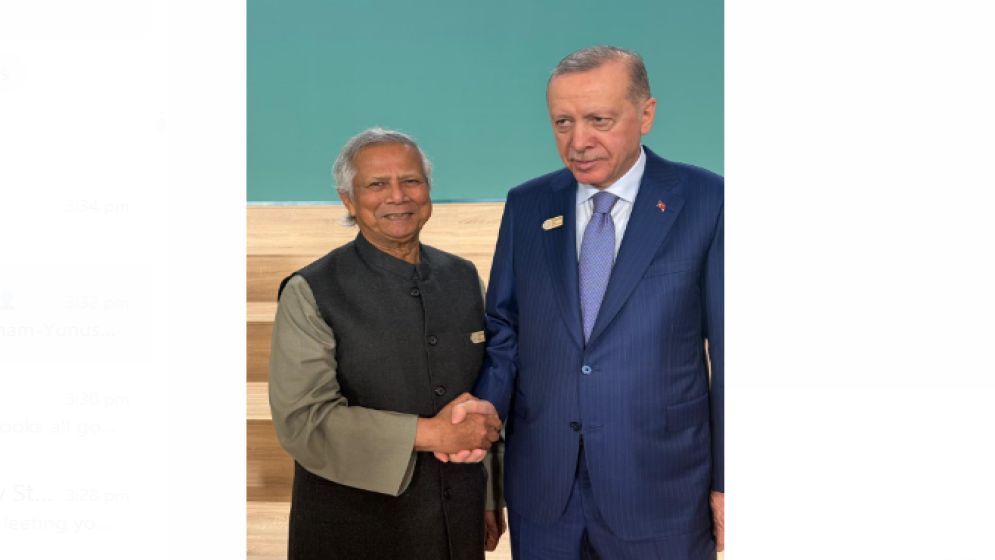Erdoğan invites Prof Yunus to visit Turkey, assures full support to build a prosperous Bangladesh
UNB
Publish: 12 Nov 2024, 03:58 PM

Baku
(Azerbaijan), Nov 12 (UNB) - Turkish President Recep Tayyip Erdoğan has invited
Chief Adviser Prof Muhammad Yunus to visit Turkey and assured Bangladesh of all
possible help in its journey to carry out deep reforms and build a prosperous
country.
Prof Yunus met the
Turkish President and the Turkish First Lady at the summit of the world leaders
at the COP29 venue on Tuesday.
Professor Yunus also
invited them to visit Bangladesh soon.
Chief Adviser Prof Yunus
had a busy day at the opening of the COP29 global climate change summit in the
Azerbaijan capital Baku.
The Bangladesh interim
leader and 2006 Nobel Peace laureate met at least 20 leaders of countries from
across the globe and heads of international agencies.
The Chief Adviser met
UAE President Sheikh Mohamed bin Zayed Al Nahiyan. He thanked the UAE president
for releasing 57 Bangladeshi nationals who were imprisoned for staging protests
in solidarity with the students in July.
Professor Yunus also met
and greeted Shehbaz Sharif, Prime Minister of Pakistan; Mohamed Muizzu,
President of the Maldives; Tshering Tobgay, Prime Minister of Bhutan; and
Ramchandra Paudel, President of Nepal.
Professor Yunus has been
calling for the revival of SAARC as a top platform for South Asia's eight countries.
SAARC revival will be a key cornerstone of his foreign policy, he had earlier
said.
Among others, he met the
Prime Minister of Belgium, President of Ghana, Prime Minister of Bosnia
Herzegovina, President of Rwanda, Prime Minister of Albania, President of
Montenegro, Prime Minister of Barbados, Vice Presidents of Brazil and Iran,
President of FIFA, and Director General of IOM.
END/UNB/MK/KW
